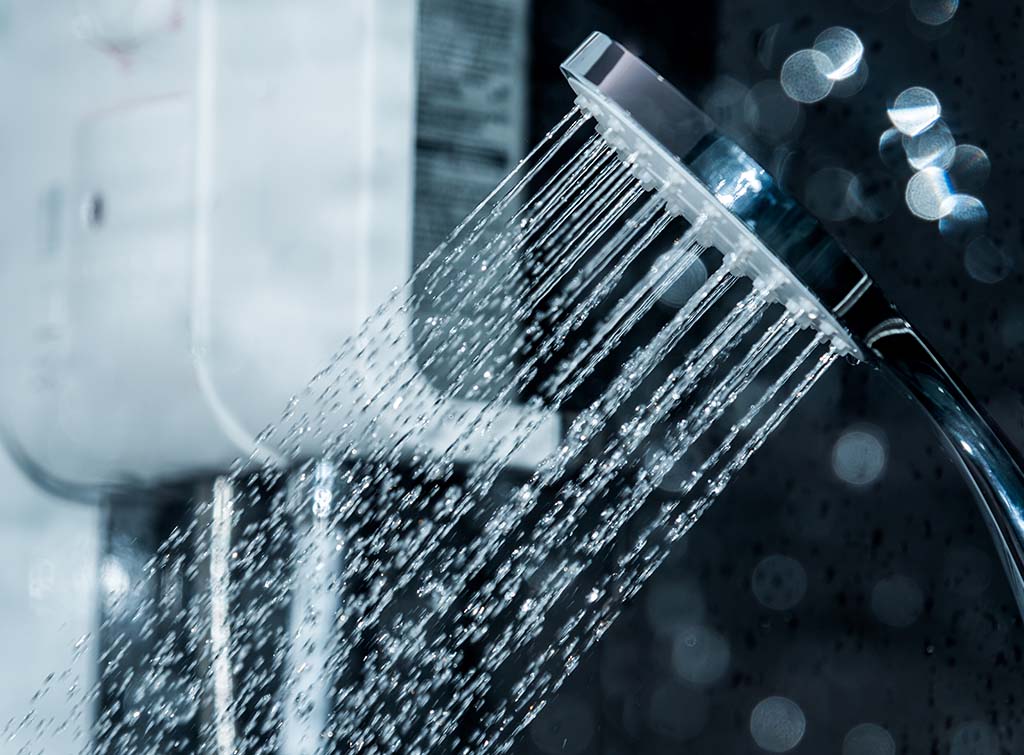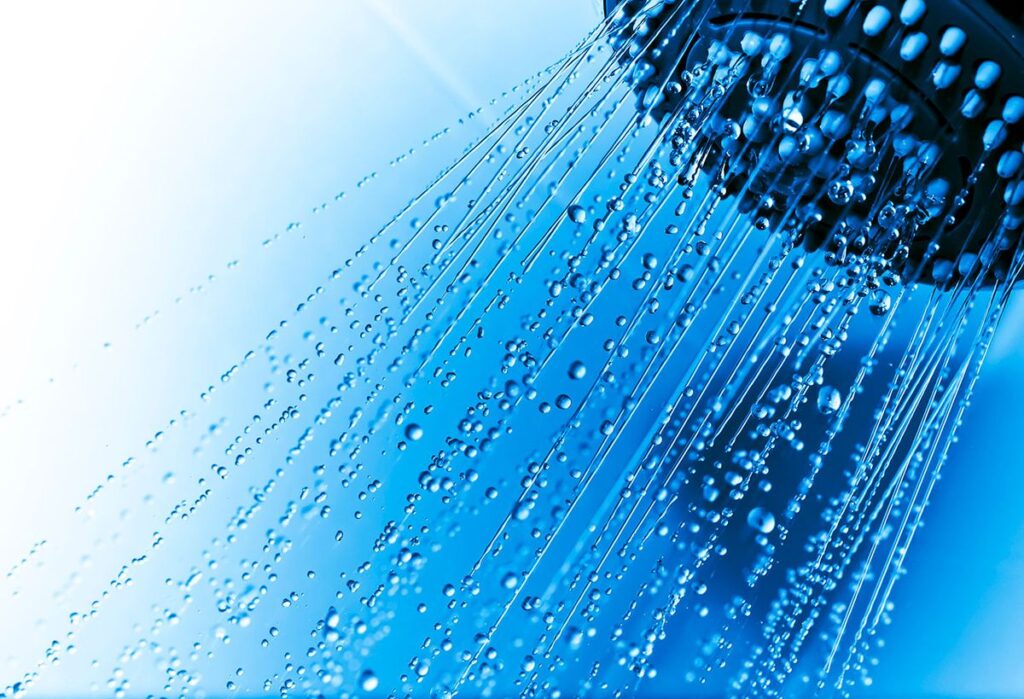If your shower keeps cutting out, one possible reason could be a malfunction in the Thermal Cut-Out (TCO). The TCO is a safety feature designed to prevent the shower from overheating by interrupting the power supply to the heating elements. When the TCO detects excessive heat, it cuts off the power to avoid damage or safety hazards.
Furthermore, if the TCO is frequently tripping or not resetting properly, it may lead to repeated interruptions in your shower. In such cases, it is advisable to check and potentially replace it following the manufacturer’s guidelines.
However, it’s important to note that other factors such as water pressure issues, thermostat malfunctions, plumbing problems, or electrical issues could also contribute to the shower cutting out. If the issue persists or if you are unsure about the solution, seeking professional assistance is recommended.
Common Causes of Shower Cutting Out

Low Water Pressure: Inconsistent water pressure can cause your shower to cut out. Check if other faucets or appliances are affected to determine if the issue is specific to the shower or a broader water pressure problem in your home.
Faulty Showerhead or Faucet: Accumulation of mineral deposits or debris in the showerhead or faucet can lead to reduced water flow and, consequently, cut-outs.
Water Heater Problems: If you’re running out of hot water, your water heater may be the culprit. This could be due to a malfunctioning heating element, thermostat issues, or a water heater that is too small for your household needs.
Shower Valve Issues: A faulty shower valve can disrupt the water flow. Check for any leaks or malfunctions in the valve mechanism.
Electrical Problems (Electric Showers): If you have an electric shower, electrical issues could be the cause. This might include problems with the wiring, the unit itself, or the power supply.
Circuit Overload: If multiple appliances are drawing power on the same circuit, it could lead to an overload, causing the circuit breaker to trip and cutting power to the shower. Ensure that the shower has its dedicated electrical circuit.
Thermal Cut-Outs: Some showers have safety features like thermal cut-outs to prevent overheating. If the water temperature exceeds a certain limit, the shower may shut off to avoid scalding. Check if the water temperature setting is appropriate and if the thermal cut-out is being triggered unnecessarily.
Plumbing Issues: Problems with the plumbing, such as leaks or blockages, can impact the water flow to your shower. Inspect the plumbing for any issues.
Troubleshooting and Solutions for a Shower That Keeps Cutting Out
1. Low Water Pressure:
- If other faucets in your home are also experiencing low water pressure, the issue may be with the water supply. Contact your water utility company.
- Clean the showerhead and check for any clogs or blockages in the pipes.
2. Faulty Showerhead or Faucet:
- Remove the showerhead and clean it thoroughly. If the problem persists, consider replacing it with a new one.
- Similar to the showerhead, faucet aerators can accumulate debris. Remove and clean them.
3. Water Heater Problems:
- Check for any visible issues with the water heater, such as leaks or signs of corrosion.
- Ensure the water heater thermostat is set to the desired temperature. If it’s too low, it might not be providing sufficient hot water.
4. Shower Valve Issues:
- Check for any leaks around the shower valve. If there’s a leak, it might be affecting water flow.
- If the valve is old or damaged, consider replacing it with a new one.
5. Electrical Problems (Electric Showers):
- Make sure that the electric shower is receiving a consistent power supply. Check for tripped circuit breakers or blown fuses.
- If you’re comfortable, check the wiring for any visible issues. If not, consult with a qualified electrician.
6. Circuit Overload:
- Make sure the shower has its dedicated electrical circuit to prevent overload. Avoid running other high-power appliances on the same circuit simultaneously.
7. Thermal Cut-Outs:
- If your electric shower cuts out, try turning the switch back on. This might help if there was a power surge. But if the shower keeps cutting out, and you’ve checked other things, there could be a loose wire. To fix that, you’ll need a professional electrician to look at the shower.
8. Plumbing Issues:
- Inspect the plumbing for any leaks or blockages that could be affecting water flow to the shower.
Navigating Electric Shower Cut-Outs: DIY Endeavors vs. Professional Expertise
In the face of an electric shower cut-out, the decision between embarking on a DIY endeavor or enlisting the expertise of a professional becomes a pivotal choice. Opting for the do-it-yourself route proves advantageous when armed with plumbing experience or armed with a comprehensive user manual outlining troubleshooting intricacies.
However, if time constraints or a lack of hands-on familiarity pose challenges, the prudent choice lies in summoning an expert. Entrusting the repair to a seasoned professional not only ensures swift resolution but also enhances the likelihood of pinpointing and diagnosing the issue with precision.
Also, the expertise wielded by a professional can transform the repair process into a seamless, one-stop endeavor, guaranteeing that your electric shower is restored to its optimal functionality from the very first intervention. Explore the realm of effective solutions with the option that aligns with your proficiency and schedule, ensuring a swift and accurate revival of your electric shower.
Maintenance Tips

To ensure your shower operates smoothly and to prevent common issues, regular maintenance is key. Here are some maintenance tips for keeping your shower in good condition:
- Remove the showerhead periodically to clean off mineral deposits and debris. Soak it in a solution of vinegar and water to dissolve limescale.
- Look for any signs of leaks around the showerhead, faucet, and shower valve. Addressing leaks promptly can prevent water damage and maintain water pressure.
- Ensure that the water pressure is consistent. Low water pressure can affect the performance of your shower. If needed, consult with a plumber to address any pressure-related issues.
- Regularly clean the shower drain to prevent hair and soap scum buildup. Use drain covers to trap debris and make cleaning easier.
- Inspect the grout between tiles for any signs of mold or mildew. Clean grout regularly to prevent the growth of these unsightly and potentially harmful substances.
- If you live in an area with hard water, consider installing a water softener to reduce mineral deposits on shower surfaces.
- If your water heater has a temperature and pressure relief (TPR) valve, test it annually to ensure it’s functioning correctly. Follow the manufacturer’s guidelines for testing.
- Check the seals and caulking around the shower for any signs of wear or damage. Repair or replace them as needed to prevent water leaks.
- If your shower has a water filter, clean or replace it according to the manufacturer’s recommendations to maintain water quality.
- If you have an electric shower, visually inspect the wiring for any signs of damage. If you’re not comfortable doing this, consult with a qualified electrician.
FAQ’s
How do you fix a shower that keeps cutting out?
Try removing the showerhead from the shower hose and running the shower. If it works correctly without the showerhead, it indicates a blocked showerhead that needs cleaning.
Why does my shower stop after a few minutes?
The issue may be a breakdown in the coil, preventing water flow. This commonly occurs when the coil fails to lift a plunger inside the solenoid valve.
Why does my shower randomly stop?
Random stops may result from blocked pipes, a clogged showerhead, or a faulty solenoid valve coil. If blockages are not evident, a plumber can locate and fix the issue.
Why would a shower cut out?
If water pressure falls below the minimum required for the heating element, the shower may cut out. Ensuring adequate water pressure is essential for proper function.
Why does my shower cut out after 5 mins?
If the shower cuts out after 5 minutes, the Thermal Cut-Out (TCO) is likely working due to a low flow problem causing overheating. Check the flow valve if the water itself is cutting out.
How do I increase shower pressure?
Increasing water pressure can be achieved by cleaning or replacing the showerhead, installing a shower pump, opting for an electric shower with a cold water accumulator tank, or considering a power shower installation.
Final Words
If your shower keeps cutting out, it might be due to an issue with the Thermal Cut-Out (TCO). This component is designed to prevent the shower from overheating by cutting off power to the heating elements. If the TCO is repeatedly tripping or not resetting correctly, it could be the cause of the interruptions.
Moreover, to fix this problem, you may need to replace the TCO following the manufacturer’s instructions. This not only restores a consistent shower experience but also ensures the safety of the unit.
In dealing with shower issues, it’s helpful to troubleshoot systematically, considering factors like water pressure and thermostat settings. Regular maintenance and timely replacements contribute to a reliable showering experience. By addressing these issues, you can enjoy your showers without the inconvenience of frequent cut-outs.
